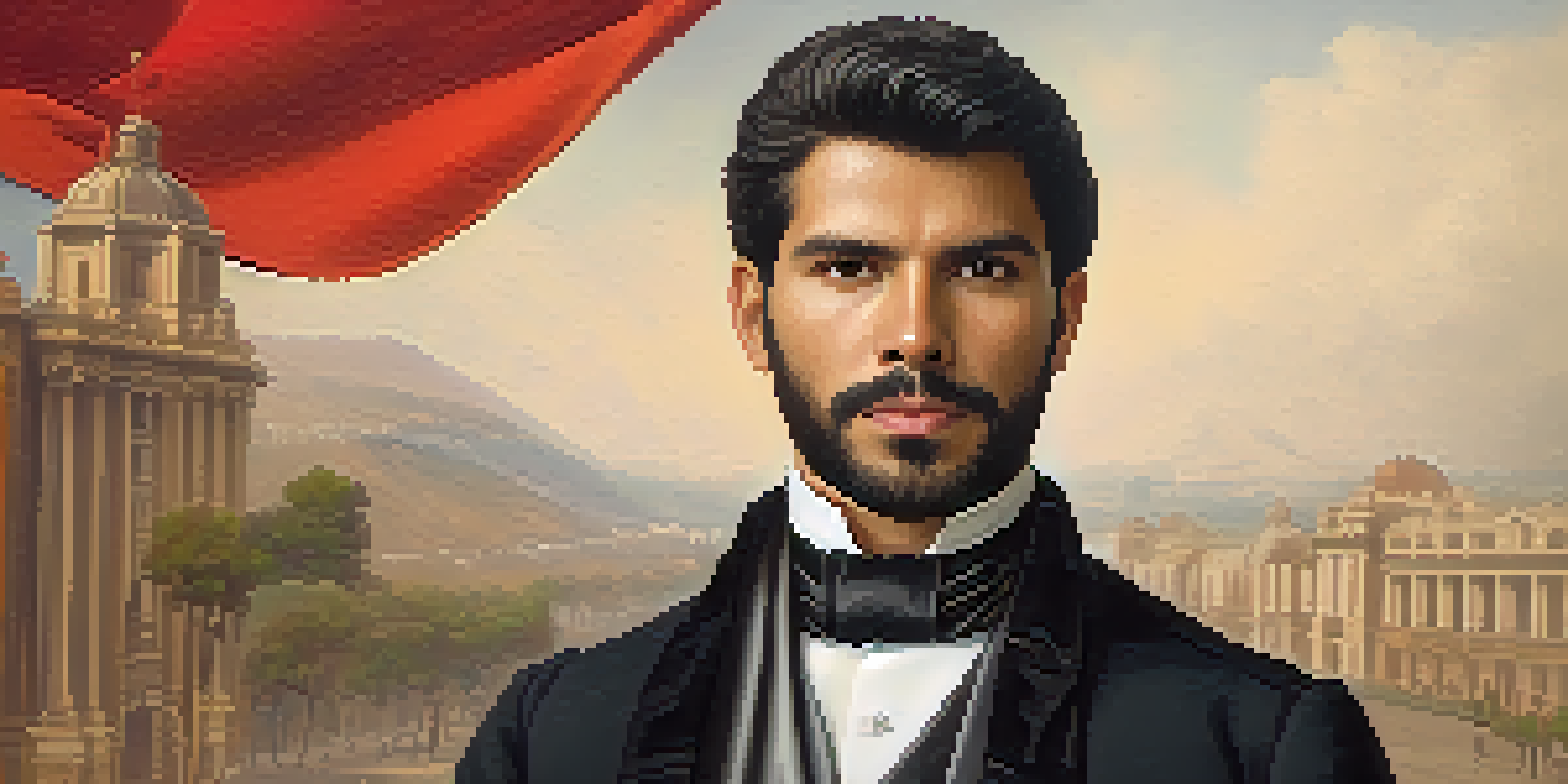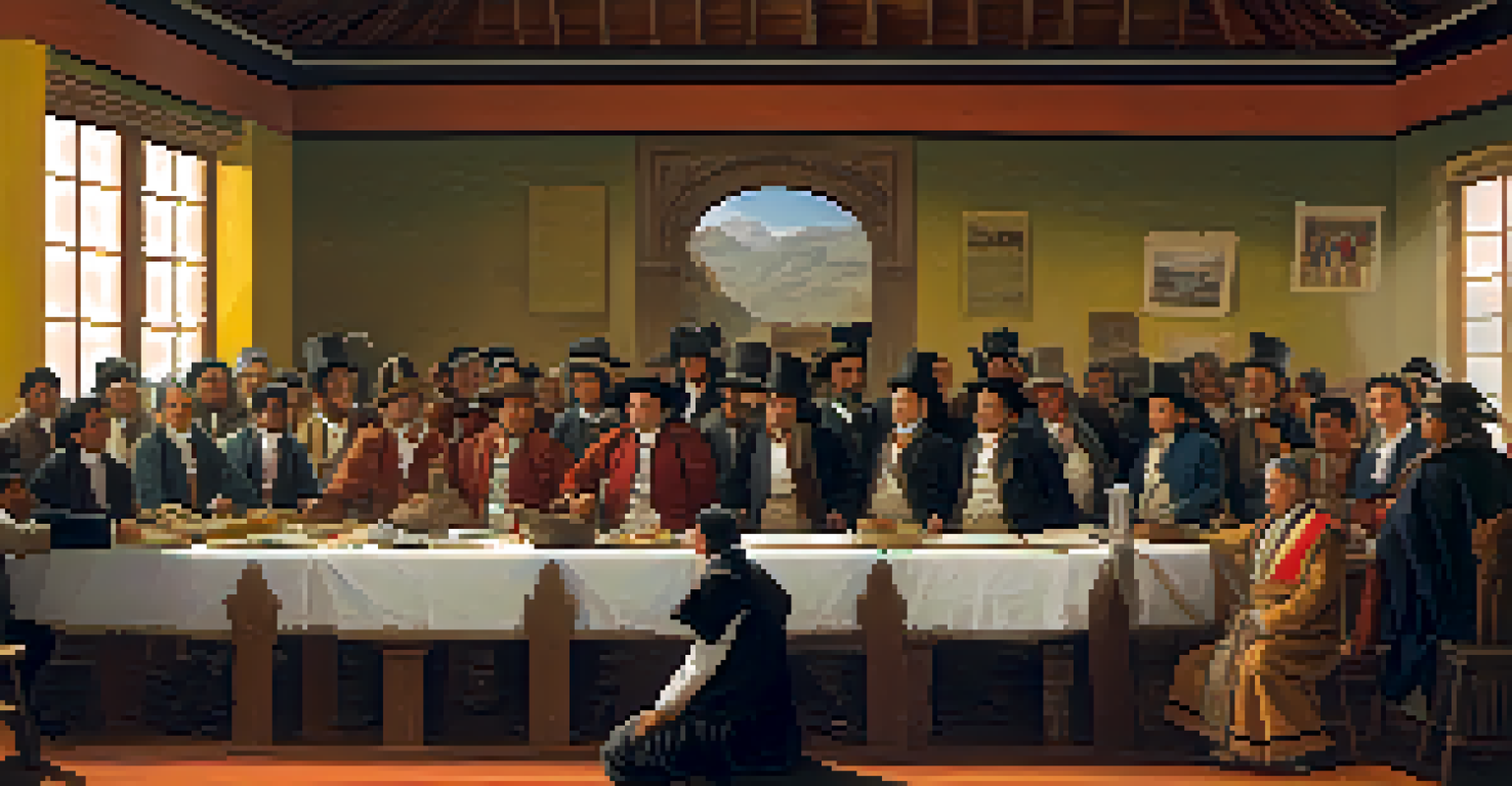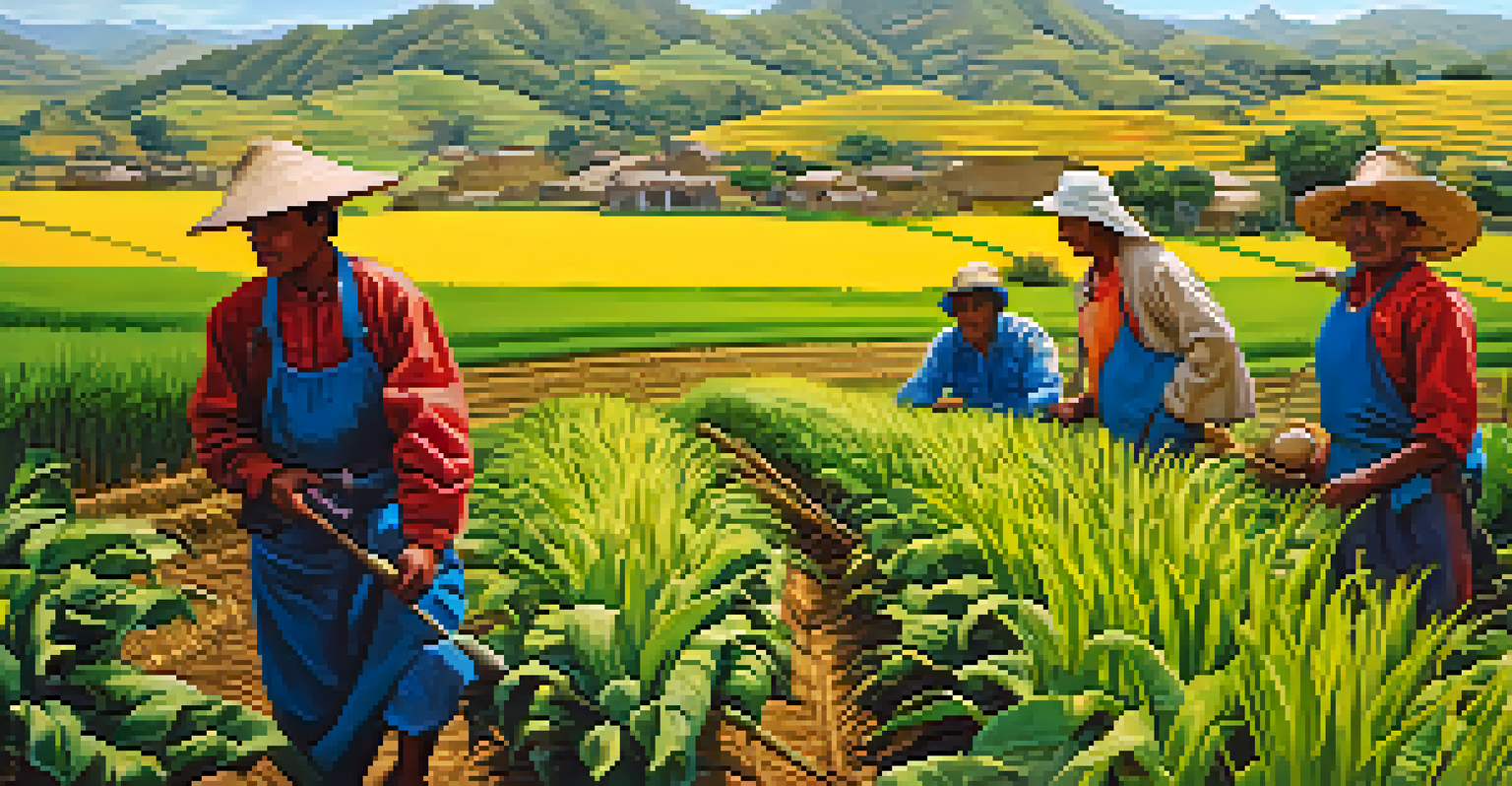José de la Riva-Agüero: Peru's First President's Impact

Introduction to José de la Riva-Agüero's Life and Presidency
José de la Riva-Agüero was born in 1783 in Lima, Peru, and became a key figure in the nation's struggle for independence from Spanish rule. His early life was marked by his education in both law and politics, which laid the foundation for his leadership skills. In 1821, as Peru declared its independence, Riva-Agüero was appointed the country's first president, a role that came with immense challenges and responsibilities.
The greatest legacy we can leave our children is not money or other material things, but rather the preservation of their dignity and self-respect.
His presidency began in a tumultuous period marked by political instability and factionalism. Despite these challenges, Riva-Agüero aimed to establish a strong governmental structure and unify the various factions vying for power. His tenure, though brief, was pivotal in setting the stage for the democratic processes that would follow in Peru's history.
Riva-Agüero's leadership style was characterized by his commitment to republican ideals, even as he faced opposition from rival factions. He believed in the importance of a constitutional government, which would ultimately influence the future political landscape of Peru. As we delve deeper into his presidency, we will explore the various decisions and policies that shaped his impact on the nation.
Political Challenges During Riva-Agüero's Presidency
Riva-Agüero's presidency was fraught with political challenges, as factions within the country often clashed over governance and ideology. The divisions were not merely political; they were deeply rooted in social and regional differences, making consensus difficult. This environment of discord made it hard for Riva-Agüero to implement effective policies, as his authority was constantly being questioned.

Despite these hurdles, Riva-Agüero attempted to navigate the political landscape by forming alliances and promoting dialogue among different groups. His efforts were often met with resistance, leading to a struggle for power that was emblematic of early republican politics in Peru. This situation highlighted the fragile nature of the nascent republic and the urgent need for stability.
Riva-Agüero's Legal Reforms
He emphasized establishing a legal framework and drafted the first republican constitution to protect citizens' rights.
Ultimately, the political strife during his presidency culminated in a coup that ousted him from power in 1823. This abrupt end to his presidency underscores the volatility of the political environment in early 19th-century Peru and reflects the broader challenges faced by many new nations emerging from colonial rule.
Riva-Agüero's Contributions to Peru's Legal Framework
One of Riva-Agüero's notable contributions was his emphasis on establishing a legal framework for the newly independent Peru. He recognized that a strong legal system was essential for maintaining order and protecting citizens' rights. To this end, he focused on drafting the first republican constitution, which aimed to outline the principles of governance and civil liberties.
A country's greatness lies in its undying ideals of love and sacrifice that inspire the mothers of the race.
The constitution emphasized the separation of powers and the importance of checks and balances, ideas that were revolutionary for the time. Although it faced numerous challenges in implementation, it laid the groundwork for future legal reforms and political stability. Riva-Agüero’s vision for a structured legal framework demonstrated his commitment to democracy and the rule of law.
However, the constitution was short-lived, and subsequent governments struggled to uphold its principles. Despite this, Riva-Agüero's efforts in legal reform remain a significant part of Peru's constitutional history, influencing later generations of leaders who sought to strengthen the rule of law in the country.
Economic Policies and Their Impact on Peru
During his presidency, Riva-Agüero faced substantial economic challenges stemming from years of colonial exploitation and war. The economy was in disarray, and the new government needed to implement policies that would stabilize and stimulate growth. Riva-Agüero understood that economic recovery was crucial for the nation’s survival and sought to address these issues head-on.
He advocated for agricultural reforms that aimed to improve productivity and support local farmers, recognizing that agriculture was the backbone of the Peruvian economy. Riva-Agüero's policies intended to encourage trade and commerce, which were vital for rebuilding the economy. However, the implementation of these policies was often hindered by political instability and opposition from various factions.
Economic Policies for Recovery
Riva-Agüero implemented agricultural reforms aimed at stabilizing and stimulating Peru's struggling economy.
Despite these setbacks, Riva-Agüero's focus on economic reform was a step towards addressing the needs of a struggling nation. His vision for a prosperous Peru would resonate with future leaders who would continue to grapple with the economic realities of a post-colonial society, showcasing the long-lasting impacts of his policies.
Riva-Agüero's Role in Shaping National Identity
Riva-Agüero's presidency played a crucial role in shaping Peru’s national identity during a formative period in the country's history. As the first president, he represented a break from colonial rule and the hope for a new beginning. His leadership was symbolic of a nation striving to define itself independent of foreign influence, a sentiment that resonated deeply with the Peruvian people.
He promoted the idea of a unified national identity, emphasizing the importance of collaboration among diverse ethnic and cultural groups. Riva-Agüero understood that for Peru to thrive, it needed to foster a sense of belonging among its citizens. His efforts in this area laid the groundwork for future leaders to build upon, reinforcing the values of unity and patriotism.
Although his tenure was short-lived, the ideals he championed contributed to a growing sense of nationalism that would flourish in the years to come. Riva-Agüero's vision for a cohesive and resilient nation continues to inspire discussions about Peru's identity and cultural heritage today.
Challenges of Governance in Early Republican Peru
The challenges of governance in early republican Peru were immense, and Riva-Agüero's presidency was no exception. The nation was grappling with the legacies of colonialism, including economic disparity and social unrest. Riva-Agüero faced the daunting task of unifying a divided populace while establishing a functional government.
His efforts to govern were often met with resistance from rival factions that sought to undermine his authority. This constant struggle for power not only made it difficult for him to implement his vision but also created an environment of instability that hindered progress. Riva-Agüero's experience highlights the complexities of leadership in a newly independent nation.
Shaping National Identity
His presidency fostered a unified national identity and a sense of belonging among Peru's diverse cultural groups.
Despite these challenges, his presidency set the stage for future attempts at governance. The lessons learned during his time in office would inform the strategies of subsequent leaders, demonstrating the ongoing struggle for effective governance in Peru. Riva-Agüero's story serves as a reminder of the trials faced by those who dare to lead in the pursuit of a better future.
Legacy and Historical Significance of Riva-Agüero
José de la Riva-Agüero's legacy is often viewed through the lens of his role as Peru's first president, but it extends far beyond that title. His contributions to the establishment of a legal framework, economic policies, and the promotion of national identity have left a lasting impact on the nation. His presidency serves as a historical touchstone for understanding the challenges faced by Peru in its early years of independence.
Although he was removed from power after a brief time, Riva-Agüero's vision for a united and democratic Peru continued to resonate with future leaders. His commitment to republican values and governance inspired subsequent generations to strive for a more stable and just society. Riva-Agüero's ideals remain relevant today as Peru navigates the complexities of its national identity.

In retrospect, Riva-Agüero's presidency can be seen as a crucial chapter in the broader narrative of Peru's history. His efforts to lay the groundwork for a functioning republic amidst chaos offer valuable lessons about leadership and resilience in the face of adversity. As Peru continues to evolve, the legacy of his presidency endures, reminding us of the importance of perseverance in the pursuit of a better future.